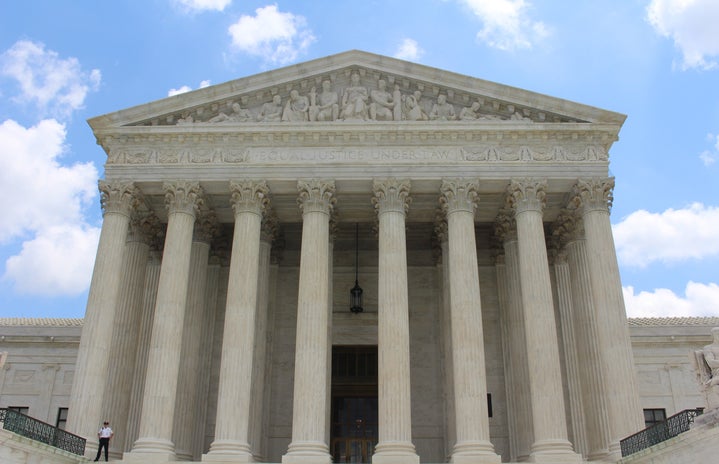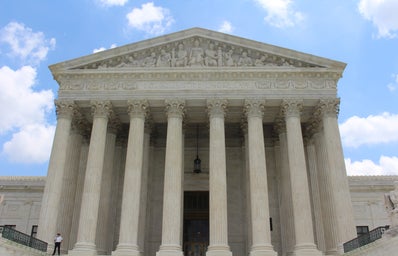On Monday, Dec. 5, the Supreme Court heard oral arguments for a case titled 303 Creative v. Elenis. The premise of the case revolves around Colorado web designer and owner of 303 Creative, Lorie Smith who wants to exclude celebrations of same sex weddings from her website services. The reasoning is her religious beliefs.
The case may sound familiar; that’s because it is. In 2018, the Supreme Court ruled on Masterpiece Cakeshop v. Colorado Civil Rights Commission where baker Jack Phillips refused, on the grounds of religious beliefs, to bake a cake for a same sex couple.
In the Masterpiece case, the majority ruling by now-retired Justice Kennedy sided with the baker. Important parts of the decision explained that religious objections to same-sex marriage are protected forms of expression. Also, Phillip’s cake-making is a form of artistic expression, an arm of his religious beliefs and should, therefore, be preserved.
Another component of that case was the Colorado Civil Rights Commission’s hostility towards Phillips when they suggested his argument of religious freedom was a pretext for discrimination. Meaning, the biased treatment towards Phillip’s religious beliefs created issues of unfairness through the Commission’s processes which affected the outcomes.
The current case is similar to the baker in that it defines the lines between First Amendment freedoms and equal protection of the law, specifically as it relates to someone’s sexual orientation.
However, Smith, the website designer, does not have a customer challenging her religious beliefs. No gay person has been denied her services and Smith has actually never made a wedding website for anyone.
Instead, Smith is suing a state public accommodation law that makes discriminatory practice based on sexual orientation, among other things, by any “place of public accommodation” unlawful. Meaning, it forbids Smith from denying her services to a same sex couple because of their sexual orientation.
The justices agreed to answer the question, “whether applying a public-accommodation law to compel an artist to speak or stay silent violates the free speech clause of the First Amendment.” Does Colorado’s proactive anti-discrimination law violate Smith’s free speech?
Smith argues that this law would violate her right to free speech. She intended to post a company policy on her website announcing that she prohibits serving gay customers due to her religious convictions. Smith says this state law would make that act unlawful and therefore violate the First Amendment.
Colorado argues that this act only regulates the sale, not the products being served.
“CADA, the state stresses, does not require Smith to offer specific kinds of design services or bar her from including biblical quotes reflecting her view of marriage on any wedding websites that she might create,” writes Howe for SCOTUS blog. “All that CADA requires, the state insists, is that Smith sell whatever products or services she decides to offer to anyone who wants to buy them.”
Colorado is also concerned about the precedent that this decision would create for other antidiscrimination laws and those having similar effects.
The court releases their decisions for this term around mid-June 2023. However, given the ideological make-up of the court and the justices’ past decisions, there is a likelihood of a 6-3 decision in favor of Smith and 303 Creative.
In that situation, the expansion of religious liberties in exchange for equal protection raises many concerns for the future of LGBTQ+ rights and those of other marginalized groups.


